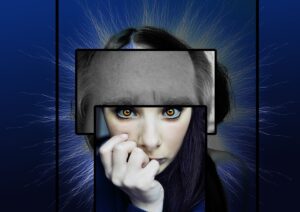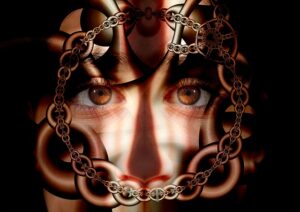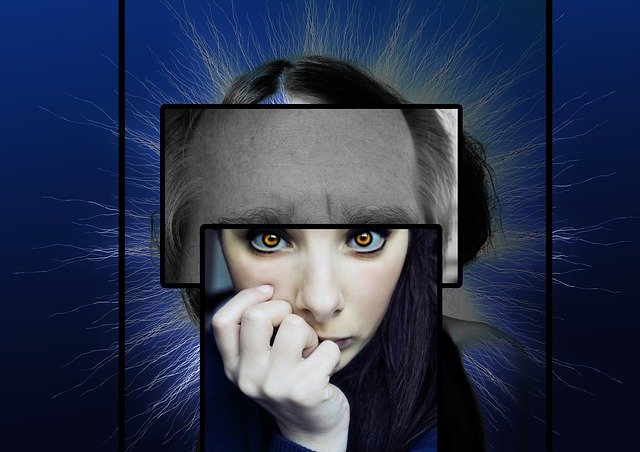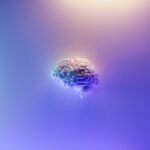
Schizophrenia is a serious mental disease that makes it difficult for someone to focus, think logically, interact effectively with others, and control their emotions.
There is currently no cure for schizophrenia, but there are medicines and other therapies that have shown to be effective in managing certain symptoms, allowing people with the illness to live a normal life.
Schizophrenia is a chronic and severe mental illness that affects nearly every aspect of one’s life. Treatment is a lifelong necessity for someone suffering from schizophrenia, and assistance with certain activities of daily living is required for many individuals with the condition.
Schizophrenia can occasionally manifest with extremely strong symptoms, but signs of the disease are usually less apparent. Working closely with a doctor and mental health specialist is the best way someone with schizophrenia can live comfortably and productively.
What is schizophrenia?
Schizophrenia is a serious, chronic mental illness. It’s marked by altered perception and frequently delusions or hallucinations. It also has an impact on a person’s perceptions of reality, interactions with others, and emotional expression.
Schizophrenia was previously divided into five subtypes in the popular Diagnostic and Statistical Manual of Mental Disorders (DSM). The DSM-5, however, combines these into two main categories of schizophrenia.
People with schizophrenia have a high risk of suicide, so any suicidal feelings or behavior should be taken seriously.
- Hallucinations, delusions, disorganized speech, attention difficulties, and poor impulse control and emotional management are all hallmarks of paranoia.
- Hebephrenic. There are no hallucinations or delusions, but there are disturbances in speaking, illogical thinking, difficulties with daily functioning, and flat expression (the inability to show emotions).
- Univariate. The patient has symptoms from more than one subtype.
- Residual symptoms are milder, less-intense instances of schizophrenia that a person who has had one or more previous episodes of the disease may experience. Slowed speech, poor personal hygiene, and flattened emotion (little ability to express emotions) are examples of these less-intense symptoms.
- The catatonic condition is a type of stupor in which the individual repeats or maintains a morose state.
What causes schizophrenia?

It’s important to note that there is no known enough to induce the condition, although it appears that a variety of circumstances may raise the likelihood of someone getting the illness.
The following are some of the factors that might influence whether or not someone gets schizophrenia:
- Physical. Changes in neurotransmitters have been linked to schizophrenia, and strabismus has been suggested to influence sight development in the brain.
- A mix of genetic. A person’s risk of developing the disease is increased if he or she has a first-degree family member with it. No single gene has been pinpointed as the key cause, but multiple gene abnormalities may elevate the danger.
- Psychological. For those susceptible to schizophrenia, major stressful life events, such as physical or emotional violence, divorce, or job loss, might trigger the disease. Drug abuse can also cause symptoms in some people.
What are the symptoms?
Positive and negative schizophrenia symptoms are the most common sorts of schizophrenic behaviors. Cognition and inappropriate motor activities are other symptoms.
- Hallucinations and delusions are common negative symptoms. Both can often be treated with medications.
They aren’t regarded good since they’re beneficial or healthy, but rather because they occur as a result of certain sections of the brain being activated. - Negative symptoms are associated with under activity of specific areas of the brain, and they do not generally respond as quickly to medicine as positive ones.
Negative symptoms include those that cause individuals to be unable to function normally. They include trouble interacting with other people and a lack of interest in establishing social connections, as well as difficulties displaying emotions and feeling pleasure. - Schizophrenia-related cognitive issues include confusion and disorderly speech. Thinking and communicative functioning may be disrupted, causing an answer to a query, for example, not to make sense to the inquirer.
- Extreme mental symptoms, such as delusions and hallucinations, may manifest differently in children.
A child’s behavior or motor skills problems might range from agitation and irritability to silliness and other juvenile qualities.
Someone with schizophrenia may not be able to answer properly in one situation but maybe move excessively in another, making communication and attention even more difficult.
How is schizophrenia diagnosed?
Schizophrenia is most often identified in persons between the ages of 13 and 35. Males are more likely to exhibit symptoms earlier than females.
Years before a diagnosis is made, someone who has schizophrenia may show certain early signs of the disease, such as cognitive problems or difficulties with social interactions.
The symptoms of schizophrenia can sometimes be glaringly obvious and life-altering, but in most cases, they are subtle and are present only in the person’s behavior.
Even more difficult is that many persons who suffer from schizophrenia do not believe they have the disease or any other mental problem.
This means that a lot of individuals will never be diagnosed, and those who are will stop taking medication or going to therapy as a result of their belief that they don’t require it.
To be diagnosed with schizophrenia, a person must have at least two of the following symptoms, which must occur frequently:
- Delusions
- Hallucinations
- Disorganized speech
- Disorganized or catatonic behavior
- Negative symptoms
Schizophrenia is sometimes divided into phases, which are defined by the presence and intensity of certain symptoms. The phases include:
- Prodromal The early stage of the disease, which is not always recognized until after the condition has been diagnosed and symptoms have become more apparent.
In this phase, a person may become more withdrawn and anxious while also having difficulties making decisions and focusing. - Active is a term used to describe someone who is functioning at full capacity. Acute schizophrenia, sometimes known as an acute schizophrenic episode, is the most obvious of all phases because it features symptoms including hallucinations, delusions, increased caution, and abnormal communication and social interactions with others.
- The residual phase is a period after the acute episode when symptoms are less apparent, but some signs of schizophrenia may still be present.
It’s commonly used to describe someone who has had at least one bout of schizophrenia but isn’t exhibiting symptoms of acute schizophrenia now.
Is schizophrenia curable?
Schizophrenia affects an estimated 0.25 to 0.64 percent of the U.S. population, according to the National Institute of Mental Health Trusted Source.
But despite years of research, scientists have yet to come up with a cure for schizophrenia or a way to prevent it.
Great advances have been made, however, in the treatment and understanding of this serious mental illness. In fact, there is now a range of medications available to help manage the symptoms and side effects of schizophrenia.
Unfortunately, no single treatment has been shown to effectively address all aspects of the diagnosed condition.
Medications for schizophrenia include antipsychotics and atypical antipsychotics. Tricyclic antidepressants might also be used to manage certain symptoms.
The antipsychotic drugs provide relief from the symptoms of schizophrenia, they do not cure the disease.
While medications may control and reduce many of the symptoms associated with schizophrenia, such as hallucinations and delusions, patients who take them often struggle with side effects like movement disorders and weight gain.
These side effects can decrease compliance among people living with this illness.
What is the best way to treat schizophrenia?

Despite the fact that medications are a major component of schizophrenia therapy, a more holistic approach that combines drugs with other non-pharmacological therapies — yoga, cognitive behavior therapy, etc. — may be best suited to help people manage their symptoms and daily responsibilities, according to research published in Frontiers in Public HealthTrusted Source.
It’s crucial to find a treatment plan that fits your needs and provides you with the right balance of support.
While schizophrenia is an extremely challenging illness to manage, therapy can be very beneficial for patients by helping them cope with their diagnosis.
The following is a list of established treatments for schizophrenia, some of which are combined based on the patient’s requirements:
Medications
The most common medications used to treat schizophrenia are antipsychotics. These drugs appear to work by impairing the action of dopamine, a neurotransmitter involved with reward and pleasure responses, movement, learning, and a variety of other activities.
Antipsychotic medications are more successful at treating certain symptoms, such as hallucinations and delusions, than first-generation antipsychotics but may occasionally exacerbate other problems, such as social withdrawal and cognitive functioning.
According to a study published in Current Topics in Medicinal Chemistry, clozapine is the most effective antipsychotic medication for treatment-resistant schizophrenia.
Another important aspect of schizophrenia treatment is psychotherapy, which is typically provided by a mental health professional.
The Society of Clinical Psychology recommends cognitive behavioral therapy (CBT), which aims to change a person’s thinking about a situation in order to alter their emotional responses and behaviors toward it.
CBT helps people become more aware of unrealistic ideas and beliefs, as well as the negative impact of stressful events.
There is increasing evidence that CBT can be beneficial for treating schizophrenia, according to the International Journal of Social PsychiatryTrusted Source.
The study found that non-pharmacological interventions can improve social functioning and reduce psychiatric symptoms in patients with schizophrenia.
Interventions in this area can also assist. They include family and group therapy, social skills training, and job training. Family treatment frequently focuses on reducing stress at home and assisting family members to cope as caregivers for individuals with schizophrenia.
Job training usually entails vocational rehabilitation programs for persons with a variety of psychological, developmental, cognitive, or emotional disabilities that result in significant functional impairments in major life activities.
Alternative therapies
According to a study in the International Journal of Yoga, yoga, and established benefit for persons with depression or anxiety, was also found to be beneficial for people with schizophrenia.
While it’s unclear exactly how yoga works, researchers believe that exercise might increase oxytocin levels, which may lead to better social cognition.
Aerobic exercise, for example, has been shown to improve both beneficial and detrimental symptoms as well as the quality of life and cognitive function.
It is thought that activity helps to increase the volume of the hippocampus in the brain, according to a meta-analysis published in Psychopharmacology Bulletin Trusted Source.
Innovative therapies
Around the world, schizophrenia therapy is a vibrant field of study. Ketamine Trusted Source, a drug that has shown promise in treating depression in recent years, and transcranial electrical stimulation, among other therapies, are being studied in ongoing clinical trials.
Long-acting injectable antipsychotic medications and transdermal patches to deliver those drugs have received FDA approval and are now available for widespread use.
The FDA has also given the drug lumateperone (Calypta) a green light, which inhibits three key neurotransmitters involved in positive and negative symptoms: serotonin, dopamine, and glutamate.
Because previous schizophrenia medications focused on dopamine alone, this medication is seen as a breakthrough.
What about remission or functional recovery from schizophrenia?
Schizophrenia symptoms can wax and wane over time, much like other types of mental illness. An individual may experience a psychotic episode that lasts months or years without the disease affecting their life.
Despite receiving effective and constant treatment, most people with schizophrenia must deal with at least some effects of the disease.
However, individuals with schizophrenia may achieve functional recovery, which means they can live independently with relatively minor or no symptoms.
Schizophrenia is a complicated condition that requires a great deal of care and support from professionals, family members, advocates, employers, and others.
The ultimate goal of schizophrenia treatment is to provide all the necessary resources so an individual can lead their best possible life.
Functional recovery, according to a poll of mental health professionals published in BMC PsychiatryTrusted Source, entails ideas such as:
- Quality of life
- Functional autonomy
- Cognitive health
- Holding a job
- Symptom management or remission
- Maintaining social relationships
Functional rehabilitation is about more than just preventing serious symptoms such as hallucinations and delusions from resurfacing.
It is also about allowing someone to live, work, have positive family relationships, and maintain friendships while still being able to do so independently or with minimal assistance.
- See also: psychological effects of social media user
- See also: psychological safety can change your organization
How do you know if someone has schizophrenia?
While schizophrenia is very serious, it’s possible for people to learn to manage their condition with medication and other therapies. With the correct treatment plan, many are able to hold jobs, maintain relationships, and even have successful careers.
The following are general signs that someone could have schizophrenia:
Self neglect – People with schizophrenia may not be able to take care of their personal hygiene or make themselves food. This can lead to depression as well as an increased risk for other medical conditions such as diabetes, heart disease, obesity, etc.
Self neglect also leads to sensory neglect, which means they may not notice or be aware of their illness and symptoms. For example, someone with schizophrenia may not feel the cold even though they are outdoors during a snowstorm.
Unusual behavior – One might see unusual behavior such as pacing back and forth, talking to oneself (or what seems like oneself), rocking back and forth, etc.
Suspiciousness – Someone may act suspicious or fearful of others including friends and family, even if they are familiar people. Individuals with schizophrenia may also experience delusions of persecution (the belief that others want to harm them) or delusions of reference (seeing things in everyday sights like the news or a passing car).
Social withdrawal – A person with schizophrenia may want to be alone for hours or days at a time, even if they once enjoyed being with friends and family.
Hallucinations – There are many different types of hallucinations, especially auditory hallucinations. Hallucinating is seeing, hearing, tasting, smelling, or feeling something that isn’t there. This includes seeing things that don’t exist, hearing voices, and believing those voices are real.
Delusions – Delusions are the most common symptoms of schizophrenia. As stated earlier, delusions are false beliefs even when presented with facts to the contrary or proof that something is wrong.
Changes in behavior – People who have schizophrenia may experience changes in their life, personality, and emotions.
Problems concentrating – Individuals with schizophrenia may have trouble focusing on conversations, tasks at work or school, or other daily activities. They may also experience an increase in errors related to concentration and memory due to lack of motivation.
Summery
According to the 2016 Global Burden of Disease Study, schizophrenia is one of the world’s top 15 causes of disability, affecting around 20 million people worldwide.
Although it might be tough to diagnose and treat at times, this serious mental illness can sometimes be treated — not cured — with a combination of medicines and other treatments.
Despite their long-term struggle with schizophrenia, many people can live fulfilling lives with supportive relationships and the right treatment.
Schizophrenia is an extremely complex disorder that causes disruptions in thinking (psychosis), changes in behavior, and difficulty expressing normal emotional responses.
Schizophrenia occurs across the lifespan. However, the average age at onset of symptoms is 18-24 years for men and 25-35 years for women.



